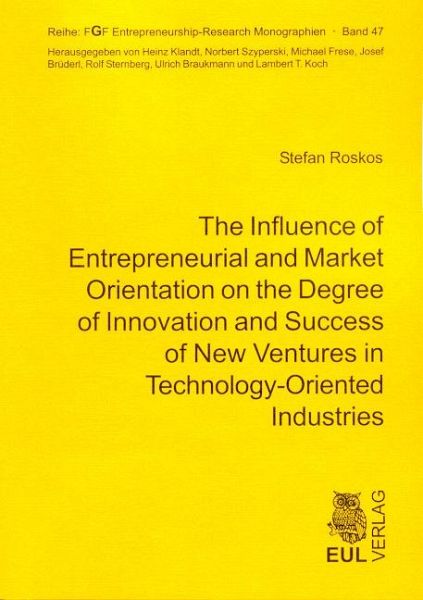
The Influence of Entrepreneurial and Market Orientation on the Degree of Innovation and Success of New Ventures in Technology-Oriented Industries (eBook, PDF)
Versandkostenfrei!
Sofort per Download lieferbar
53,00 €
inkl. MwSt.

PAYBACK Punkte
0 °P sammeln!
The wireless communications industry has seen major challenges in the past years. The introduction of new services based on emergent technologies was meant to be the driving force into future growth. But what does it take to introduce a successful new service that gains the acceptance of the customer? To elaborate on this, one must take a look at new ventures since innovation in the wireless industry is driven by these numerous small, young companies. This study investigates the impact of entrepreneurial orientation, market orientation, and the degree of innovation on the success of these new ...
The wireless communications industry has seen major challenges in the past years. The introduction of new services based on emergent technologies was meant to be the driving force into future growth. But what does it take to introduce a successful new service that gains the acceptance of the customer? To elaborate on this, one must take a look at new ventures since innovation in the wireless industry is driven by these numerous small, young companies. This study investigates the impact of entrepreneurial orientation, market orientation, and the degree of innovation on the success of these new ventures. A structured large-scale research project was set up to identify all relevant companies in Europe and Israel. A total of 1,510 companies were contacted, from which 282 useable responses could be collected, representing a response rate as high as 18.16%. Linear structural relationship modeling was used to analyze the data. It can be said that new ventures can benefit from an entrepreneurial stance that emphasizes the development of new technological solutions. It is critical that these new developments do not require a shift in customer behavior or planning. To translate a proactive, innovative, and risk-embracing orientation into market success, new ideas and developments need to go through the filter of customer judgment. While customers are overemployed with the development of new solutions, they can give very valuable feedback on new ideas and developments. The belief that customers are not immediately able to see the benefits of a new development but will soon learn about it is a dangerous one.
Dieser Download kann aus rechtlichen Gründen nur mit Rechnungsadresse in A, B, BG, CY, CZ, D, DK, EW, E, FIN, F, GR, HR, H, IRL, I, LT, L, LR, M, NL, PL, P, R, S, SLO, SK ausgeliefert werden.













